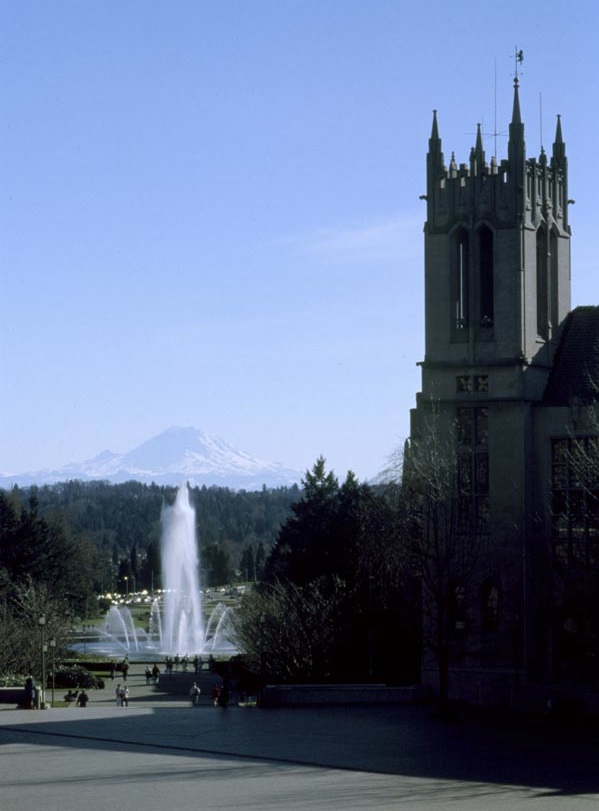|
|
UW RTG IPDE Summer School 2012
|
Dates: July 2 - 20,
2012.
Material for this year's summer
school is posted here.
Overview
A three-week summer school
giving advanced undergraduates and
beginning graduate students the
opportunity to study with the University of Washington's
integrated Inverse
Problems/PDE group. Students
will attend lectures in the
morning and problem sessions in
small groups with mentors in the
afternoon. Advance your career by
learning from experts in these
fields while visiting Seattle
during summer 2012, when the
Pacific Northwest is at its best.
|
 |
Minicourses
|
The Radon
transform and the X-Ray
Transform (Robin
Graham, Peter
Kuchment, and Leonid
Kunyansky) This course
will present in detail the
essential properties of these
transforms, including inversion
formulas. The X-ray transform
models one of the basic inverse
problems arising in computerized
tomography (CT). It consists of
determining the density of tissue
by measuring the attenuation of
X-rays passing through the body.
The inverse problem for the Radon
transform consists of determining
a function from integrals along
planes. Students will also work on
Matlab programs implementing the
filtered backprojection algorithm
commonly used in CT scans, and
some of its generalizations.
Problem sessions and computer labs
will be scheduled during the
afternoons.
|
|
A mathematical
approach to cancer growth (John
Lowengrub, Ami
Radunskaya, and Tatiana
Toro). Understanding
tumor growth is both a
mathematical and a biological
problem. Much work has been done
recently from the mathematical
point of view in tumor modeling.
Nevertheless the mathematical
state-of-the-art lags behind the
current understanding of tumor
growth from the biophysical
perspective.
The goal
of this mini-course is to present
a couple of different models of
solid tumor growth. A brief
introduction to the immune system
will be necessary. The first model
concerns the dynamics of tumor
growth and will require equation
development and finding numerical
solutions to ODE initial value
problems. Then we will present a
sharp-interface continuum model of
tumor growth. From the
mathematical point of view this
corresponds to a free boundary
problem. If time allows we will
present a multiphase mixture model
of solid tumor growth which
incorporates more detailed
biophysical processes.
Problem
sessions and computer labs will be
scheduled during the afternoons.
|
Program details
- Open to advanced undergraduates and
beginning graduate students.
- On-campus accommodation and meals will
be provided, plus a travel allowance of
up to $600.
- Must be a U.S. citizen or permanent
resident.
 Note:
Applications from international
students may be considered, but
international students must provide
their own support for travel,
accommodation, and meals. In
particular, small travel grants may
be available for Canadian students,
who should contact PIMS Deputy
Director George
M. Homsy for possible support. Note:
Applications from international
students may be considered, but
international students must provide
their own support for travel,
accommodation, and meals. In
particular, small travel grants may
be available for Canadian students,
who should contact PIMS Deputy
Director George
M. Homsy for possible support.
To Apply:
Submit by April 1 via the online application:
- Personal statement about why you would
like to attend the IPDE Summer School at
the University of Washington.
- Names of two people whom you will ask
to submit letters of recommendation.
Please direct
questions or comments about the IPDE
Summer School to
ipdemail@math.washington.edu.
|
|
|


